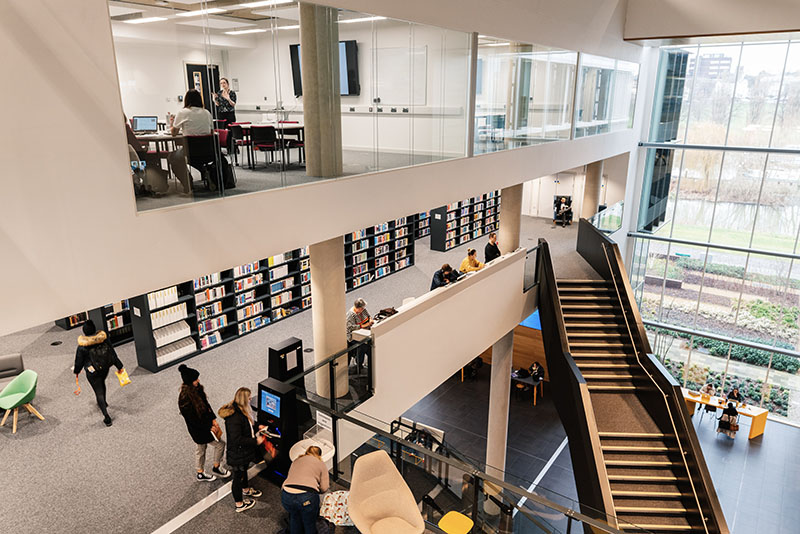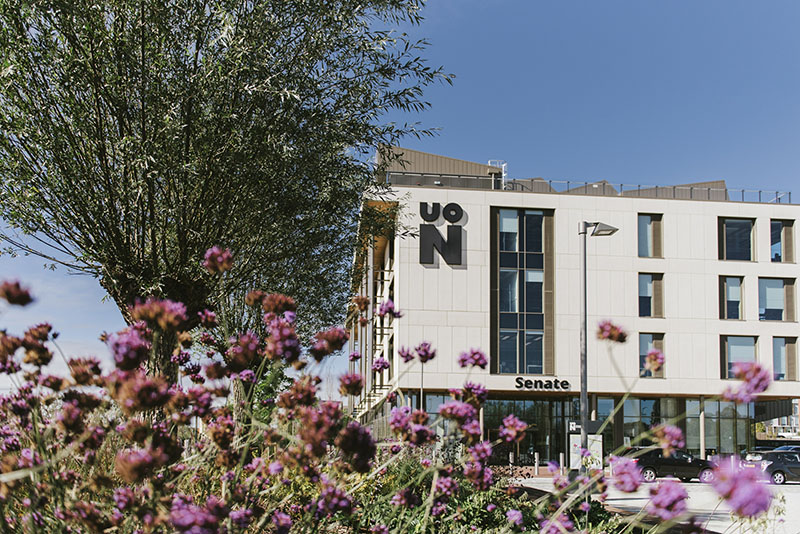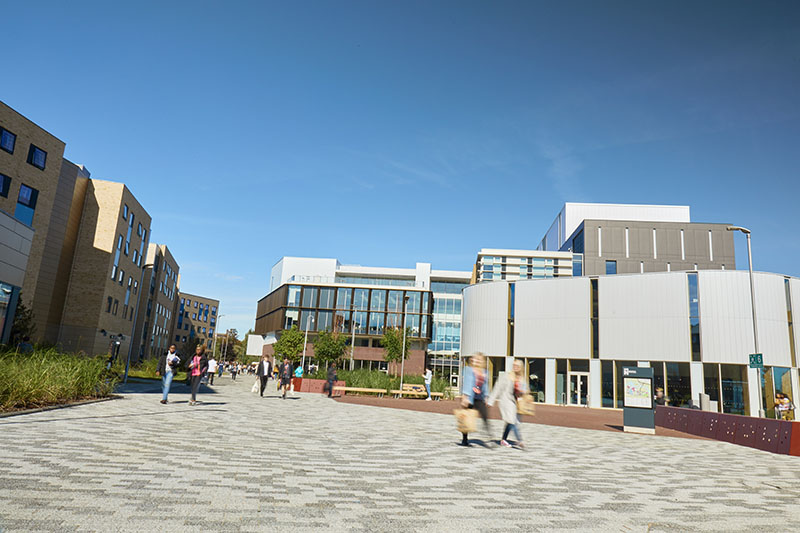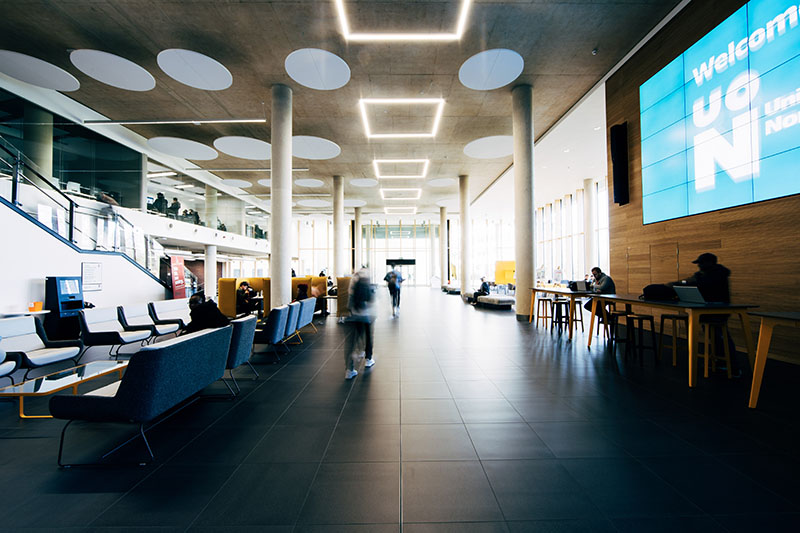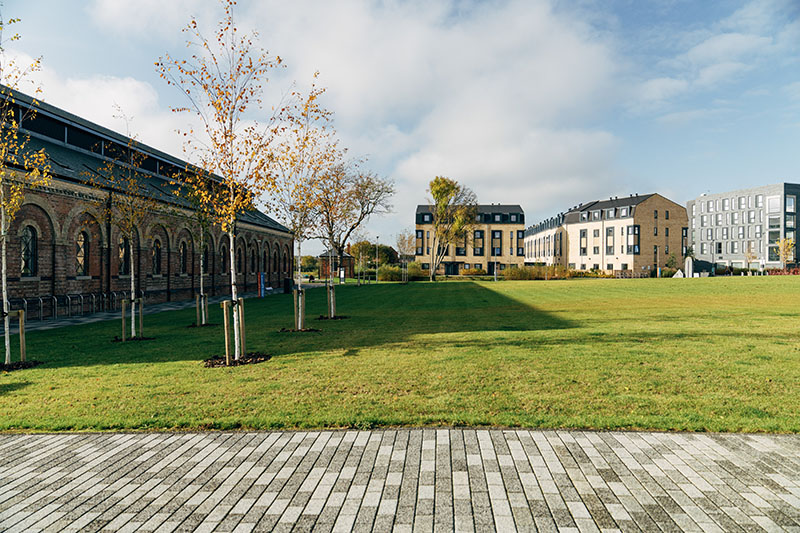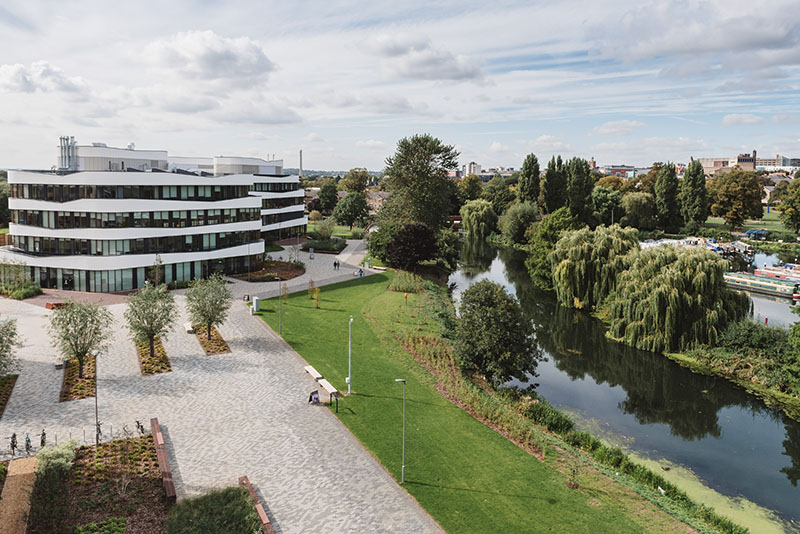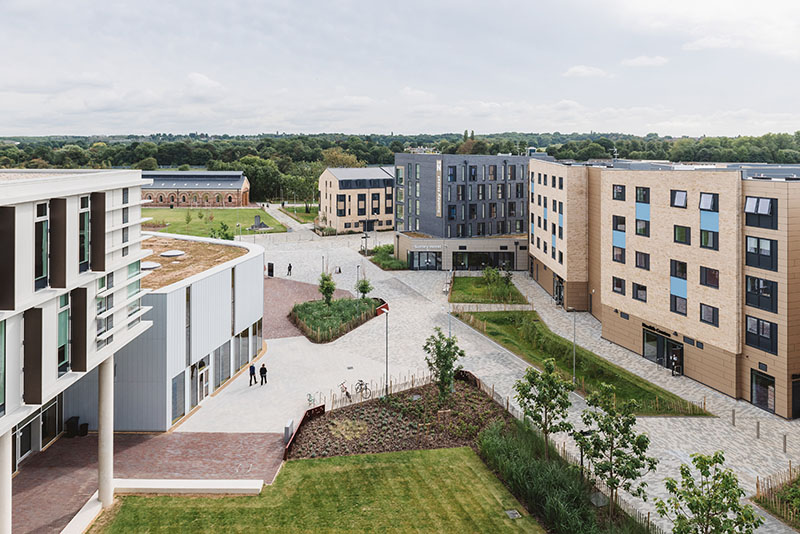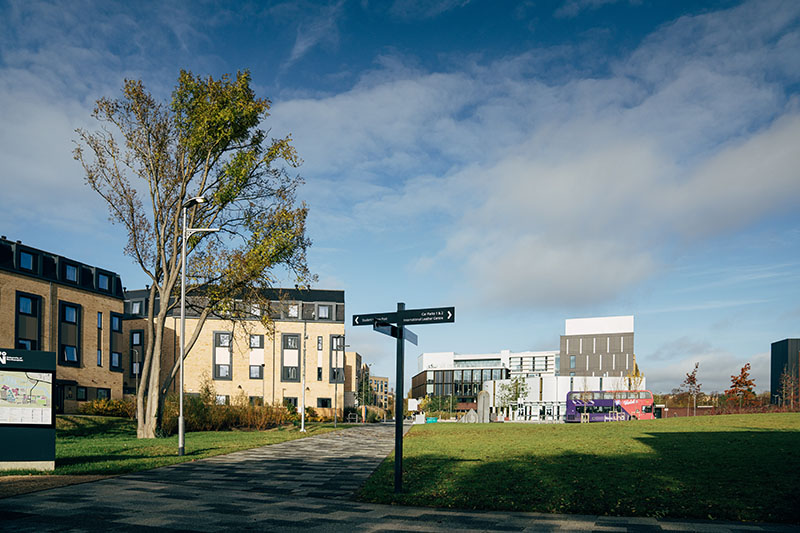
Tim Reinke-Williams
Senior Lecturer in History
History BA (Hons)
DiscoverUCAS Code
BA: V100
BA with Foundation: V102
Level
Undergraduate
Duration
Full Time: 3 years
Full Time Foundation: 4 years
Part Time: 4 years
Starting
September
BCC at A Level or,
DMM at BTEC
Fees UK 24/25
Full Time: £9,250
Part Time: £1,540 (per 20 credits)
Integrated Foundation Year: £9,250
Fees International 24/25
Full Time: £15,200
Integrated Foundation Year: £15,200
Location
For questions regarding study and admissions please contact us:
Studying BA History at the University of Northampton will allow you to gain an excellent understanding of how historical events have shaped the contemporary world, as well as to develop key skills which are valued by diverse employers.
Our History BA degree is delivered by a friendly group of deeply knowledgeable staff whose expertise encompasses the history of politics, warfare, society, culture, economics, religion, class, age, race, medicine, crime, gender, emotions and sexualities. Students study the distant and recent past, local communities and global networks, learning how to compare societies across time and space, but also how to engage critically with evidence and the arguments of other historians. UON History BA graduates emerge from their studies as intellectually enriched individuals who pursue interesting and rewarding careers.
Updated 04/04/2024
All History BA modules at UON are constructed by experts in their respective fields who produce important books and peer-reviewed journal articles, appear on TV and radio shows, write for publications such as the BBC History Magazine, and act as expert advisors to government and heritage groups.
During your History degree, they will help you develop valuable skills in communication and analysis by working with online datasets, investigating historical texts, objects and images, and engaging with arguments put forward by leading historians. The History team are a small, friendly group who care about the quality of your experience, learning journey and destination in the workplace. The lecturers are there for you if you need support and will empower you to develop into independent learners who can thrive in the workplace.
In the first year of your History BA degree, you learn about the study of history as an academic discipline and gain the key skills you need to complete assignments. Medieval and Early Modern history are core parts of the degree, and those intrigued by the distant past can study major events and processes which occurred between the late Middle Ages and the Enlightenment. North American history is covered in depth too, enabling students to explore the rise of the USA as a global superpower. Those fascinated by Modern history can study warfare and diplomacy in nineteenth-century Europe as well as the Holocaust and its legacies, while those interested in the History of Medicine can investigate attitudes to and experiences of disease and disability from the ancient world to the early twentieth century.
In your second year, you study topics which align with staff research interests, as well as gain opportunities to develop skills for use during your degree and after you graduate. Students study medieval chivalry, crime and the law in eighteenth- and nineteenth-century England, family relations between the Tudor and Georgian eras, the lives of the poor in eighteenth-century and nineteenth century Britain, the First World War, twentieth and twenty-first century communism, and the legacies of European imperialism. Staff provide guidance on how to prepare for final year research projects, and there are opportunities to undertake work-based learning projects.
In your History BA final year, under the supervision of a lecturer, you spend up to a third of your time developing a research project on a topic of your choosing. As in the second year, students choose from various modules which focus on topics such as the Wars of the Roses, British military intelligence between the Elizabethan age and the Second World War, Georgian country houses, fascism and the far right, working lives of early modern women, the East End of London at the time of the Jack the Ripper murders, citizenship and gender in Victorian Britain, and attitudes to death and bereavement between the late Middle Ages and the First World War.
Throughout your History degree, you are encouraged to build and develop your skills for the future, and our students go on to have a wide range of interesting careers. This includes a focus on digital literacy skills, such as creating blogs, podcasts and recorded presentations, as well as working with groups, researching and writing detailed essays, working to deadlines and becoming a subject specialist in an area that interests you. In the second year, you will have the opportunity to undertake a research project for a library, archive or heritage organisation. By the end of your degree at UON, you will be prepared for the graduate job market or future study.
During your second year of the History BA, you will have an opportunity to develop your analysis and communication skills by undertaking a work-focused research project connected to an archive, library or heritage organisation through a dedicated work-based learning module. This is designed to help you develop into a work-ready graduate, and will enable you to:
We also have links with many local and regional employers, especially those linked to the heritage sector. In recent years, our students have undertaken projects for:
We also work closely with the university’s Student Futures team, which has a wide range of links with local and national graduate employment opportunities and run regular events on campus for students.
The University of Northampton is a fantastic place to study for a BA History degree, located near the heart of a diverse, historic market town in a county which witnessed key historical events including the trial of Thomas Becket and the execution of Mary Queen of Scots.
Studying for a BA in History in Northampton involves daily physical contact with the past in the form of medieval churches, Tudor townhouses, a listed Victorian Guildhall, the National Museum of Leathercraft, and a local record office with primary sources dating from the Middle Ages to the present day.
The Searchlight Archive, a rich collection of materials related to twentieth-century social and political history, is housed at UON, while the civil war battle-site of Naseby and numerous country houses are within easy reach of campus. For those wishing to explore historical sites further afield, Birmingham, Coventry, Leicester and London are within easy reach by public transport.
Please note the modules shown here relate to the academic year 23/24. The modules relating to the academic year 24/25 will be available from June 2024.
A typical offer for our BA History course would be:
We welcome applications from students with a mix of A levels and BTEC/Cambridge Technical qualifications.
For more information on how to make an application, please visit our How to Apply page.
If you are an International student and would like information on making an application, please see our How to Apply page.
Admission to this foundation programme is normally:
However, we would also like to hear from you if you have professional or industry experience instead, a range of other qualifications or self-developed subject knowledge that relates to the programme you wish to study.
All International and EU students applying for a course with the University of Northampton must meet the following minimum English language requirements:
For information regarding English language requirements at the University, please see our IELTS page.
Fees quoted relate to study BA History in the Academic Year 24/25 only and may be subject to inflationary increases in future years.
Those studying BA History at the University of Northampton will have opportunities to join a range of fascinating study trips, which in recent years have included a Jack the Ripper tour in the East End of London, as well as visits to the Imperial War Museum and Bletchley Park. These trips are optional and typically you will only be asked to pay for your travel, with costs varying depending on where you book them from.
Fees quoted relate to study BA History in the Academic Year 23/24 only and may be subject to inflationary increases in future years.
Those studying BA History at the University of Northampton will have opportunities to join a range of fascinating study trips, which in recent years have included a Jack the Ripper tour in the East End of London, as well as visits to the Imperial War Museum and Bletchley Park. These trips are optional and typically you will only be asked to pay for your travel, with costs varying depending on where you book them from.
For information on the scholarships available to you, please see our scholarships page.
For more information about possible funding options, please visit our Fees and Funding pages.
At the University of Northampton, everything we do, from funded trips to paid internships, is to give you everything you need to make a difference when you leave.
If you join this full time History degree at Northampton, you will receive a laptop when your course begins*. The laptops are built to a bespoke custom specification ideal for use in the seminar room, collaborative group work or studying at home.
Whatever your ambitions, we’re here to help you to achieve them. We’ll support you to identify the skills you’re learning during your History course, find your strengths and secure practical experience so that when it comes to applying for jobs or further study you’ll feel confident in standing out from the crowd. We’ve created the Northampton Employment Promise because we are so confident that if you focus on your studies and complete one of our awards you’ll be highly employable by the time you graduate. Putting you in a great position to secure employment or continue your studies.
To check out the full list of perks, visit our Student Perks page or dedicated International Perks page.
*UK fee payers only (see Terms and Conditions for further details). For more information about possible funding options, please visit our Fees and Funding pages.
The Integrated Foundation Year (IFY) offers a new and exciting route into studying for a History degree, attracting ambitious and driven students who are willing to learn and advance.
If you have non-standard qualifications or do not quite meet the admissions requirements we can offer you a fantastic opportunity to study a four year programme which includes an Integrated Foundation Year. The Integrated Foundation Year will help you develop the theoretical/practical and academic skills you need, in order to successfully progress to the full award.
Our four-year courses will enable you to successfully follow the degree pathway of your choice while gaining essential study skills. The foundation year of your chosen degree will be studied on a full-time basis and is aimed at supporting the transition to higher education. Years two, three and four are then studied as a standard degree programme.
During your studies, you will have regular opportunities to discuss theories about the past and examine historical evidence. Most modules are taught in weekly four-hour blocks which allow time to explore complex topics in significant depth, as well as to ask questions of the experts who lead classes.
Typical debates you engage with include whether there was a Scientific Revolution in the seventeenth century, did the law discriminate against women in the eighteenth century, what were the causes of the First World War, and how should western societies respond to calls for reparations from former colonies?
To answer these sorts of questions throughout your BA in History, you’ll examine autobiographies, diaries, letters, conduct manuals, newspapers, portraits, charters, pamphlets, legal and medical records, and objects such as eighteenth-century shoes, in the classroom and during field-trips, but also read, discuss and engage in constructive dialogue with the arguments of other historians.
In the first and second years (levels 4-5) a third of your time (12 hours per week) will be spent in class, allowing you regular face-to-face contact with lecturers so that you can explore ideas and ask questions.
These contact hours are supplemented by 24 hours of independent study, and there are opportunities to meet regularly with your personal tutor if you need academic and pastoral support. Modules last for one semester, and students take 60 credits (usually three modules) in each.
In the third year (level 6), you spend 8 hours per week in class (two modules per semester) to allow you time to work on your research project, but there are opportunities to take one-to-one tutorials with lecturers too, and you retain the support of your personal tutor.
Assessments on this History degree enable students to display their knowledge of historical processes and events, and to demonstrate how they can use evidence to communicate their ideas about the past. Short essays are a key form of assessment, but students also communicate what they have learned through blogs, posters and podcasts.
History lecturers at UON want students to treat assessments as exciting opportunities to display their knowledge and offer guidance on how to structure and what to include in assignments, as well as extensive feedback once work has been completed.
Open Days give you the best experience and insight to courses, people and facilities that interest you. Make your choice easier and come meet us.
Senior Lecturer in History
History BA (Hons)
DiscoverSenior Lecturer in History and Heritage
Faculty of Arts, Science and Technology
DiscoverProfessor in the History of Radicalism & Extremism
Faculty of Arts, Science and Technology
DiscoverHead of Graduate School
History BA (Hons)
DiscoverSenior Lecturer in History
Faculty of Arts, Science and Technology
DiscoverProfessor in History
Faculty of Arts, Science and Technology
Discover
This course provides you with an excellent grounding for careers across the public, private and voluntary sectors.

Our Sociology course allows you to develop your understanding of how humans shape and are shaped by the society they live in.
